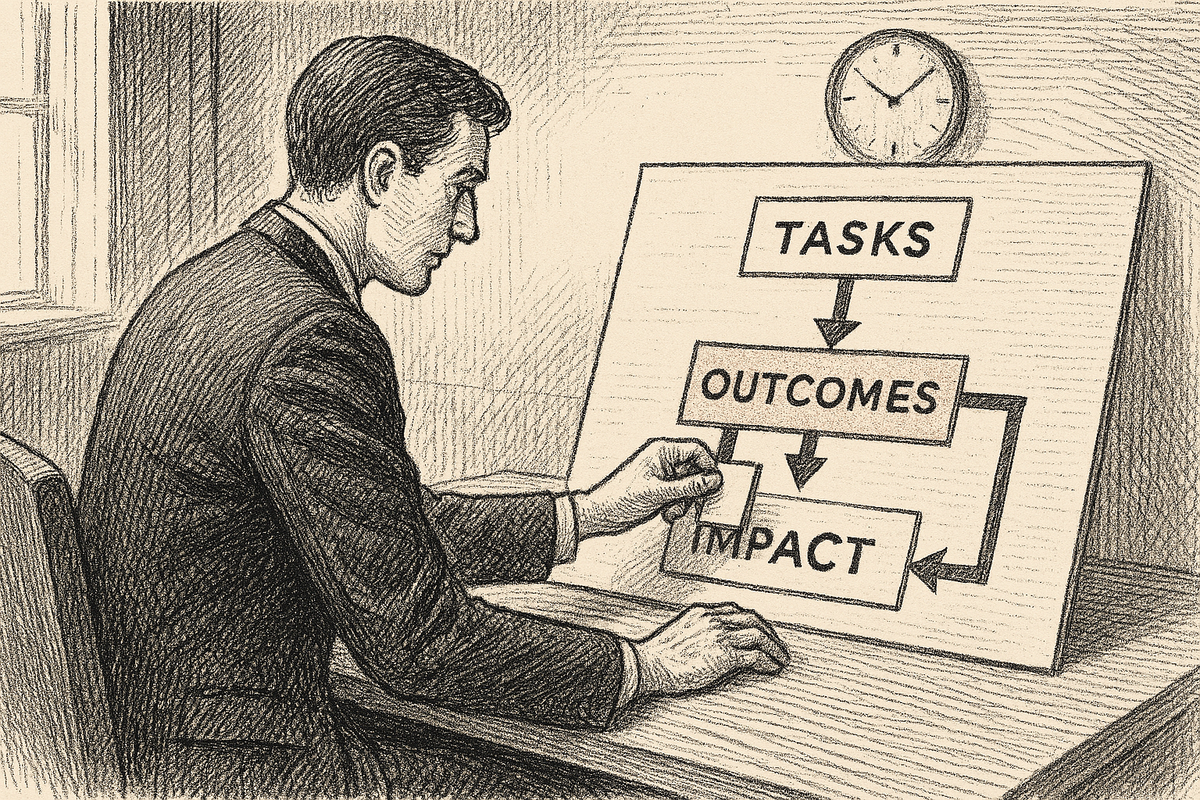You Didn't Get the Promotion
You delivered results, earned respect, and went the extra mile—yet the promotion didn’t come. This playbook helps you navigate the letdown, reframe the moment, and rebuild momentum with clarity, influence, and intention.
Scenario
You delivered, and then some. You worked late, said yes to stretch projects, and earned the respect of your peers. You did everything "right"—but when the promotion cycle closed, your name wasn’t on the list.
Now what?
What You’re Likely Experiencing
This isn’t just disappointment. It’s dissonance. You did the work — but the outcome broke the script you were promised.
- Emotionally: Resentment, embarrassment, self-doubt
- Cognitively: Questioning your value, or rethinking what leadership actually rewards
- Behaviorally: A potential drop in motivation or overcompensation through further overwork
Research insight: Studies show that perceived organizational injustice—especially around promotions—activates the same neural pathways as physical pain[1].
Reframing the Moment
Promotions are often treated as validation. But if your career strategy is tethered to recognition you can’t control, you’re not leading — you’re waiting.
This is a moment of divergence. Either it becomes a rupture that erodes your drive, or a reframe that sharpens your next move.
Within Your Leverage Zone
Let’s shift the lens from what’s in your “control” to what’s within your strategic influence — your leverage zone.
- Your personal narrative
Rejection is data, not a definition. How you frame this internally is your leadership in action. - Your visibility architecture
Talent isn’t always visible. Influence often is. If your outcomes aren’t echoing in the right rooms, it’s time to rework the amplifier. - Your sponsor ecosystem
Mentors advise. Sponsors advocate. Who is in the room when your name is mentioned? - Your impact framing
Translate your work from tasks to transformations. Show how you didn’t just complete deliverables — you shifted outcomes. - Your energy allocation
Withdraw energy from reputation maintenance. Reinvest in reputation redefinition.
Structurally Out of Scope (For Now)
These forces matter — but they are chessboard dynamics, not chess piece decisions.
- Closed-door decision-making
Some decisions are made informally, and you were never on the invite list. Yet. - Budget cycles and bandwidth excuses
Promotions aren’t just about readiness — they’re about timing and cost. Don’t mistake a “not now” for a “not ever.” - Unacknowledged bias
No one’s going to say “you’re too quiet,” “too female,” or “not part of the club.” But these signals often live between the lines. - Unclear scoreboards
If success metrics were never visible, you were aiming at a moving target. That’s not a failure of performance — it’s a failure of clarity.
Strategic Next Steps
1. Seek calibrated feedback
Not vague praise. Not gentle reassurance. Ask specific questions:
“What would have made me undeniable?”
“How are promotion decisions really made here?”
2. Reposition your value narrative
Update how you talk about your work. Focus on who was impacted and what changed — not what you completed.
3. Reassess sponsorship dynamics
Are you relying on performance to do all the talking? Elevation often comes from advocacy, not effort.
4. Audit organizational fit
Is this a misstep in timing — or a mismatch in values? If it’s the latter, staying might mean shrinking.
5. Set a six-month reframing sprint
Craft a six-month re-ascend plan: high-leverage wins, visible impact, narrative control. Not for revenge — for re-alignment.
Emotional Reset
You’re allowed to be disappointed. You’re not obligated to stay there.
This isn’t about bouncing back — it’s about building forward, with more discernment.
Prompt: What would you say to a peer you respect, if they were in this situation?
Now offer that same compassion — and clarity — to yourself.
Optional Tools for Empowered Members
- Impact Story Builder – Template to shift your resume and 1:1 conversations from task-driven to value-led.
- Promotion Debrief Worksheet – Turn opaque outcomes into actionable insights.
- Narrative Rewrite Prompts – Reframe this disappointment as a power reset.
Bottom Line
You didn’t get the promotion. That’s the headline.
But the real story? You’re learning to lead yourself through disappointment — and that’s the skill most promotions can’t teach.
- Bault, N., Joffily, M., Rustichini, A., & Coricelli, G. (2011). Medial prefrontal cortex and striatum mediate the influence of social comparison on the decision process. Proceedings of the National Academy of Sciences, 108(38), 16044–16049. ↩︎




